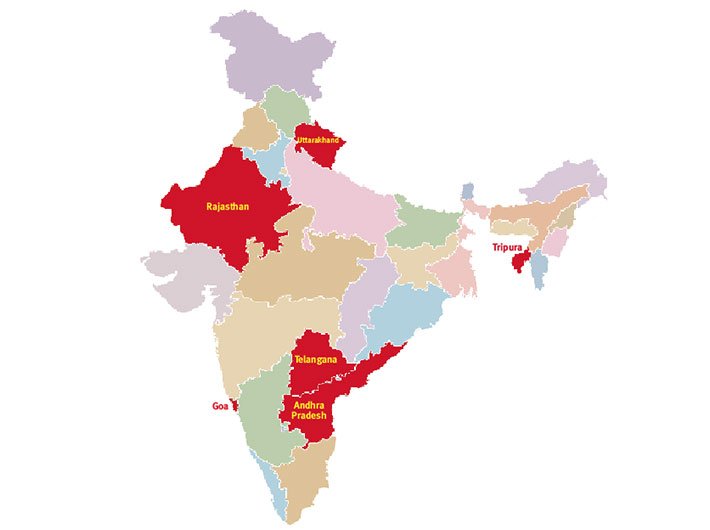Democracy is defined as “government of the people, by the people and for the people”. Our well established system of elections satisfies to a great extent the definition “of and by the people”. Further, both central and state governments are implementing innumerable development schemes for the benefit of the citizens of the country. Therefore, satisfaction of the definition of “for the people”, would depend on the extent to which the various developmental activities of the government are benefitting the citizens as ‘users’, by improving accessibility to essential goods and services, in an equitable manner, while safeguarding their basic rights under the constitution and the Consumer Protection Act. A measure of the success also depends on the extent to which the citizens as the users feel that their aspirations in this regard, stand fulfilled and that their tax money is utilised effectively in such welfare schemes.
It is in this context that Consumer Online Foundation, a national level consumer organisation, undertook a pan-India study on citizens’ perception of consumer-friendly states. The main objective of the study was to ascertain to what extent the various states and union territories have put in place appropriate systems and procedures for ensuring citizen-consumer satisfaction, and also identifying their strengths and weaknesses, based on well-defined parameters. In order to develop these parameters five regional consultations were held with various stakeholders in New Delhi, Chennai, Kolkata, Srinagar and Guwahati covering the states and union territories in these regions and three verticals, viz., consumer education and awareness and consumer complaint redressal mechanism; public grievances and public services; and healthcare delivery and food safety were chosen as the parameters for the study.
It was also decided to add ‘ease of doing business’ as a fourth parameter because if business activities are burdened by inefficient processes and systems, then the cost of such inefficiencies of governance gets loaded to the cost of products and services, which are ultimately borne by the consumers. The second aspect is the importance of the Make in India policy of the government of India, which is expected to not only bring foreign investment for boosting the economy, but is also intended to generate employment opportunity and promote skill development. Therefore for ‘ease of doing business’, the following findings of a study by the World Bank, based on an assessment of the overall implementation of key initiatives by the states, were adopted: Gujarat: 71.4%, Andhra Pradesh: 70.12%, Jharkhand: 63.09%, Chhattisgarh: 62.45%, Madhya Pradesh: 62.00%, Rajasthan: 61.04%, Odisha: 52.12%, Maharashtra: 49.43%, Karnataka: 48.50%, and Uttar Pradesh: 47.37%.
A carefully developed questionnaire, consisting of nine questions each for the remaining three verticals, based on the four regional consultations, were sent to the chief secretaries of 36 states and union territories to elicit information on the status prevailing in their states in regard to these verticals.
Here is a brief analysis of the responses received from the states. There were five states that provided partial information but covered all the three verticals. Six states provided partial information and covered two verticals, while 15 states covered only one vertical. Out of total 972 questionnaires 127 responses (13.07%) were received.
States/UTs which did not respond to any of the questionnaires include Arunachal Pradesh, Bihar, Chandigarh, Chhattisgarh, Jammu and Kashmir, Mizoram and Tamil Nadu. The detailed study is available on the Consumer Conexion website.
The above analysis along with the data received from states was presented to a jury consisting of six eminent board members of the foundation, for assessing the extent to which they could be considered as citizen/consumer-friendly state. As information received from the states did not cover all the verticals and in many cases they were partial or incomplete, the jury could not give any inter-se ranking to the states. However, they held the view that non-furnishing of information or providing partial information by some of the states did not necessarily imply that they would not have systems and procedures in place in respect of the verticals concerned. Being the first study of its kind, these states might have faced some constraints in gathering information and making them available.
The jury therefore came to the conclusion that the following six states may be recognised at the event organised on World Consumer Rights Day on March 15, 2016, by way of encouragement, for their efforts towards establishing a consumer/citizen-friendly state and providing at least some basic information on the three verticals. These states are Goa, Andhra Pradesh, Telangana, Tripura, Rajasthan and Uttarakhand.
The study report also included the following recommendations for taking the initiative forward in the future:
- Such a study may be made an annual feature so that states may be encouraged to furnish information as required and also ensure that action is taken to show positive achievements.
- Some methodology may be developed to identify departments and officials who achieve significant success in reaching pre-fixed targets in respect of each of the verticals and to also recognise individuals or teams, who are responsible to bring change in the delivery system of public services.
- A suitable mechanism for obtaining regular feedback from the field offices is developed in each state and readily made available at the headquarters, based on frequently asked questions (FAQs) by various stakeholders.
- On occasions like the present study, where information is to be gathered from various sources and agencies, a suitable nodal officer may be specifically designated for coordination and furnishing of reliable information promptly, which will build trust and credibility on the government services and enable citizens to seek speedy redressal on several important issues without being pushed from one desk to the other.
- There is urgent need for updating websites of the states as in many cases the incumbents had changed; most websites of the state governments do not provide email IDs and in some cases the emails IDs were also found to be incorrect. In many cases faxes could not be sent on the numbers provided by the concerned departments.
- State governments must develop a system of sharing the success stories emerging from innovative and creative projects, which are citizen-consumer centric to enable other states to replicate such success models/ best practices and exchange ideas to bring efficient governance within the states.
Krishnan, IAAS (retired), is a board member of Consumer Online Foundation.



